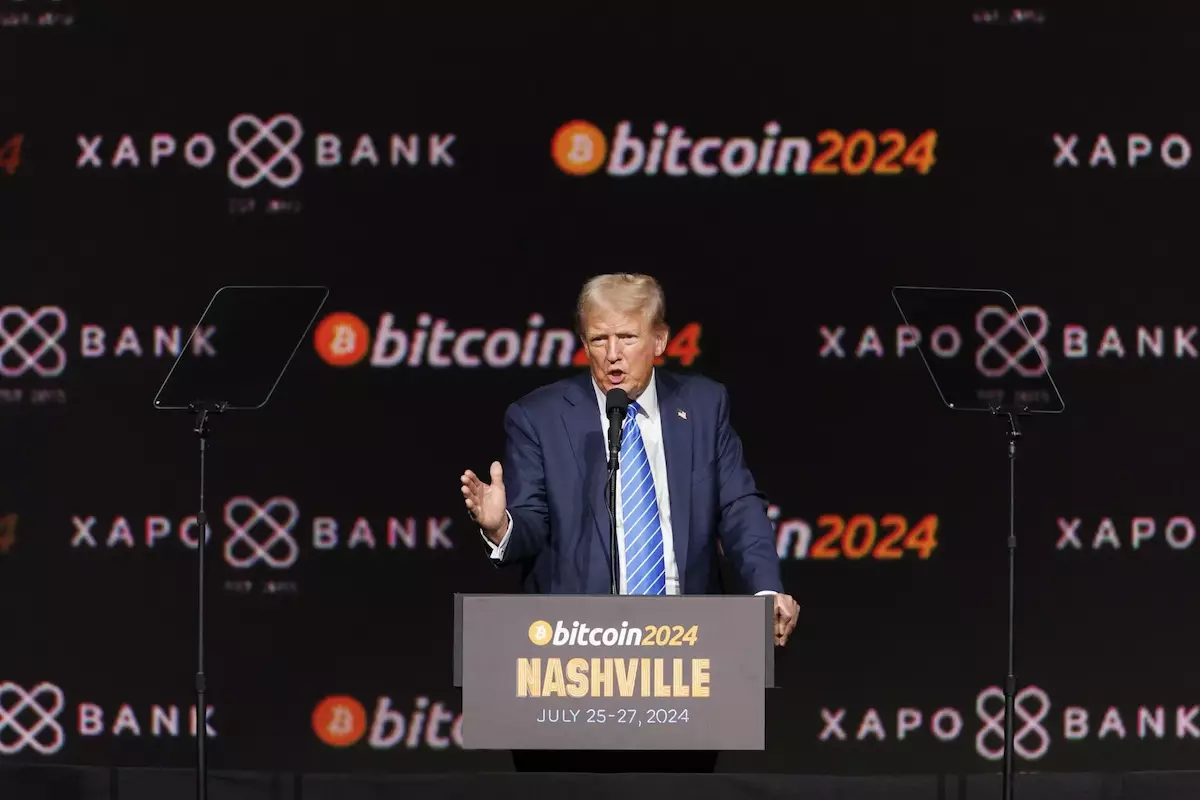The election of Donald Trump has potential repercussions across various sectors, including the rapidly evolving world of Web3 gaming. Characterized by technological innovation, decentralized ownership, and community-driven models, Web3 gaming is at the forefront of blockchain technology and digital assets. As we consider the impacts of a Trump presidency on this landscape, it is essential to explore how his shifting stance towards cryptocurrency and digital assets will influence the industry.
Donald Trump’s journey with cryptocurrency has been tumultuous. Initially, in 2021, he labeled Bitcoin a “scam,” voicing concerns that it could undermine the integrity of the US dollar. Fast forward to today, and we see a notable shift in his administration’s outlook toward cryptocurrency, reflecting a broader global trend favoring blockchain adoption. As many nations adopt favorable regulations for digital assets, a Trump presidency appears poised to align with this movement. Should his administration opt to relax previous regulatory frameworks, it could open avenues for innovation within the Web3 gaming sector.
The significance of regulatory clarity cannot be overstated. In a space that thrives on tokenized economies, having less restrictive policies could empower developers to innovate without the fear of punitive measures. This change would foster an environment where players and developers are more likely to engage in Web3 gaming without the looming threat of regulatory scrutiny.
Looking back at Trump’s first term, the crypto market experienced dramatic fluctuations. The bullish run of 2017 saw Bitcoin surge from around $1,000 to nearly $20,000; Ethereum similarly rose from $8 to over $700, with the total market cap skyrocketing from $17 billion to over $600 billion. This meteoric rise was followed by a substantial correction in 2018, creating a volatile landscape characterized by rising and falling fortunes for both Bitcoin and Ethereum. Unquestionably, the Trump administration’s policies contributed to the impressions of uncertainty or opportunity within this vibrant market.
The COVID-19 pandemic in 2020 saw a unique resilience in the crypto market as Bitcoin rose to over $29,000 by year-end, suggesting that the influential factors surrounding cryptocurrency markets are complex and multifaceted, with political climate as an integral component.
A significant aspect of Trump’s proposed agenda includes criticism of stringent regulatory oversight—particularly targeting SEC Chair Gary Gensler. Trump’s promises of appointing a more crypto-friendly figure could have profound implications for Web3 gaming. A pro-crypto SEC would likely facilitate smoother pathways for token issuance and trading, effectively dismantling existing regulatory hurdles and democratizing access to decentralized gaming platforms.
This relaxation of regulations would not only foster the legitimacy of in-game assets but also attract substantial investment into the Web3 gaming space. With the market steadily gaining traction but still in search of widespread acceptance, supportive regulations could unlock untapped potential and usher in a wave of innovation.
The potential for a flourishing investment climate under a Trump administration is compelling for the future of Web3 gaming. As decentralized gaming platforms garner millions of users, the affirmation of pro-crypto policies could lead to an influx of venture capital. This financial backing would expedite the development and integration of blockchain technologies within traditional gaming, propelling Web3 gaming into the mainstream.
Interestingly, the ripple effects of US policies on global crypto paradigms could be substantial. Other countries often look to the US when shaping their regulations. This potential alignment could enhance international collaboration in Web3 gaming or conversely ignite regulatory conflicts. Either outcome would have far-reaching effects on how the global community navigates the burgeoning digital economy.
The return of Donald Trump to the White House could herald a significant transformation in the Web3 gaming landscape. Governance that embraces crypto and blockchain technology promises to foster innovation, stimulate investments, and attract traditional gaming entities into the decentralized realm. Yet, this potential also carries a burden of uncertainty, as the very need for clear guidelines remains paramount.
If the administration continues to advocate for a pro-crypto stance, the industry may thrive amid a supportive regulatory climate. Indeed, as Web3 gaming evolves, the reactions of developers and investors will help shape the discipline’s trajectory. In turn, the interplay between US policies and global blockchain initiatives could redefine the gaming economy on an international scale, paving the way for a more interconnected digital future.


Leave a Reply